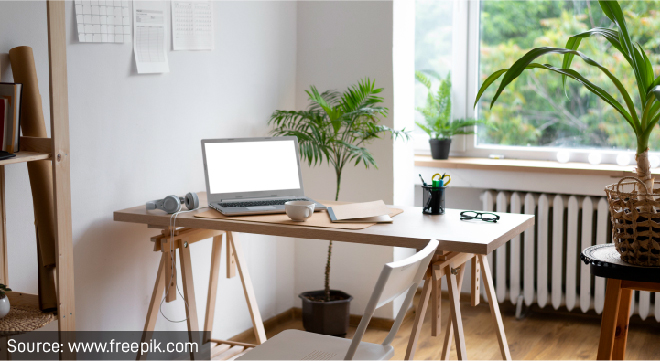Many taxpayers will again hit a wall when trying to claim any home office expenses during the current tax filing season, despite having worked mainly from home since the start of the Covid-19 pandemic.
There has been no legislative response to the hybrid workplace, where people work partly from home and partly from the office.
National Treasury announced in the 2021 Budget that it would conduct a multi-year project to review the current travel and home office allowances. The aim is to investigate the efficacy, equity in application, simplicity of use, certainty for taxpayers and compatibility with environmental objectives of the allowances.
Tax experts have expressed concerns about a multi-year review because the hybrid workplace is already a reality and requires an appropriate response.
In February, Treasury committed to publishing a discussion document this year on a personal income tax regime for remote work.
Nigh on impossible
The gap in the legislation means that many employees who are working from home will again fail to meet the requirements that allow them to claim deductions for home office expenses.
“The restrictions on the ability to claim home office expenses make it pretty much nigh on impossible, certainly for salary workers, to claim deductions,” says Kyle Mandy, tax policy leader at PwC.
The biggest hurdle for most taxpayers is the requirement that the workspace must be used exclusively for purposes of trade.
“Show me the house where that is the case. Only the most fortunate amongst us might have a dedicated office that they use only for work purposes and nothing else,” says Mandy.
The South African Revenue Service (Sars) states clearly if a taxpayer does not have a separate room set aside for a home office, it will be very difficult to prove that the area claimed as being used for trade is used exclusively for that purpose.
If a couple shares a workspace and there is no clear division of the room, and they share a desk, the exclusivity requirement will not be met, and no deductions may be claimed.
In a draft interpretation note, Sars even states that when the room is used by children after hours or it is used for other purposes over weekends, it is not used exclusively for the taxpayer’s trade. So, again, no deductions will be allowed.
If the cupboards of your home office are used to store your linen, you must exclude that space, to ensure that only expenses relating directly to the home office are claimed.
Documentary proof
The tax season officially kicked off in July, and taxpayers who want to claim home office expenses should include the following documents when submitting their returns:
- A letter from the employer permitting remote work, including the period in which it was allowed;
- A floor plan showing the dedicated space and a calculation of the proportion in relation to the total buildings on the property;
- Photographs showing the dedicated space and how it is equipped for the trade;
- A schedule when working “mainly” from home – showing that more than 50% of all work for the tax year was from home;
- Invoices of claimed expenses and proof of payment; and
- A schedule of amounts claimed and apportionment calculations.
Navigating the rules
It can be quite daunting for the ordinary taxpayer to figure out what expenses are allowed, and in which circumstances they are allowed. They must consider different interpretation notes, as well as certain sections of the Income Tax Act.
For example, furniture and certain wi-fi equipment owned by the taxpayer may qualify for a wear-and-tear allowance. However, other wi-fi costs are not permitted as a deduction. Data usage is not an expense that may be claimed by an employee.
“That expense could, however, be reimbursed by an employer,” says Sars in response to frequently asked questions on home office tax requirements.
Mandy earlier noted that the legislation as it is currently drafted poses some practical challenges. If an employee receives data for work purposes, they must differentiate between private and business use.
Employees receiving data vouchers or allowances could end up paying tax on them if these are considered a fringe benefit.
Sars does say that if the data is used “mainly” for the purposes of the employer’s business, the employee could qualify for a no-value benefit. However, the onus is still on the employee to prove that it was used “mainly” for work purposes.
Taxpayers who can claim deductions must be aware that the part of the property that is used for work will “taint” the primary residence exclusion for capital gains tax purposes.
The discussion document
National Treasury says it invited detailed submissions, particularly on new workplace policies for hybrid working or working from home.
“We did not receive submissions of that nature since the request.” According to Treasury, this may be because many workplaces have adjusted their work from home policies in the meantime, as the pandemic evolved.
Work on the discussion paper is continuing, but there is no specific date for publication. “We indicated that this will be a multi-year project, as it may impact salary structuring,” says Treasury.
Mandy says several promised documents have not yet materialised. “Quite frankly, when it comes to consultation papers or discussion documents, I would not place any reliance on Treasury’s timeframes,” he adds.
Amanda Visser is a freelance journalist who specialises in tax and has written about trade law, competition law and regulatory issues.
Disclaimer: The views expressed in this article are those of the writer and are not necessarily shared by Moonstone Information Refinery or its sister companies.




It looks like a no win situation for hybrid workers , if you don’t have a specific area converted into an office